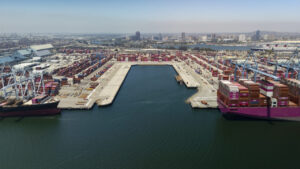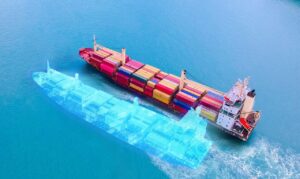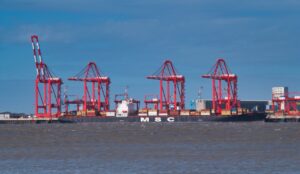Smart Freight Center (SFC) and FEPORT have signed a MoU to incorporate the most appropriate existing methodologies for port terminals in the Global Logistics Emissions Council (GLEC) Framework.
The framework aims to tackle the global freight and logistics sectors carbon dioxide emissions, which account for 6% of the worldwide total.
GLEC framework is now recognised as the logistics sector guidance by the Greenhouse Gas Protocol Corporate Standard — the most widely-accepted GHG accounting practice.
Lamia Kerdjoudj-Belkaid, FEPORT Secretary General, said: “Sustainable port and logistics operations and the reduction of carbon emissions are among the top priorities for private port operators.
“For many years our members have taken voluntary concrete steps to reduce their emissions. We believe that industry actors remain best placed to take initiatives aiming at the necessary steps to continue to reducing emissions and we are doing it.”
SFC formed GLEC in in 2014 through a voluntary partnership of companies, associations and programs committed to the consistent calculation and reporting of emissions from logistics operations.
Since 2012, the major container terminal operators in the European Union have created a voluntary methodology called EEEG Guidelines, which allows container terminals to calculate their CO2 emissions on a periodical basis.
Alan Lewis, GLEC Director at Smart Freight Centre, said: “Real life practical application is the next key step for the GLEC Framework to demonstrate its benefit across the transport chain.
“We are really looking forward to working with FEPORT and its members in their carbon calculation, reporting and improvement actions and integrating this with the rest of the GLEC Framework.
Kerdjoudj-Belkaid concluded: “We are looking forward to transforming the Memorandum of Understanding signed with SFC into concrete and useful results.”
Last month (December 2016), the Director of Policy and External Relations for the International Chamber of Shipping, the global trade association for shipowners, criticised the European Union for incorporating international shipping into its regional Emissions Trading System.








